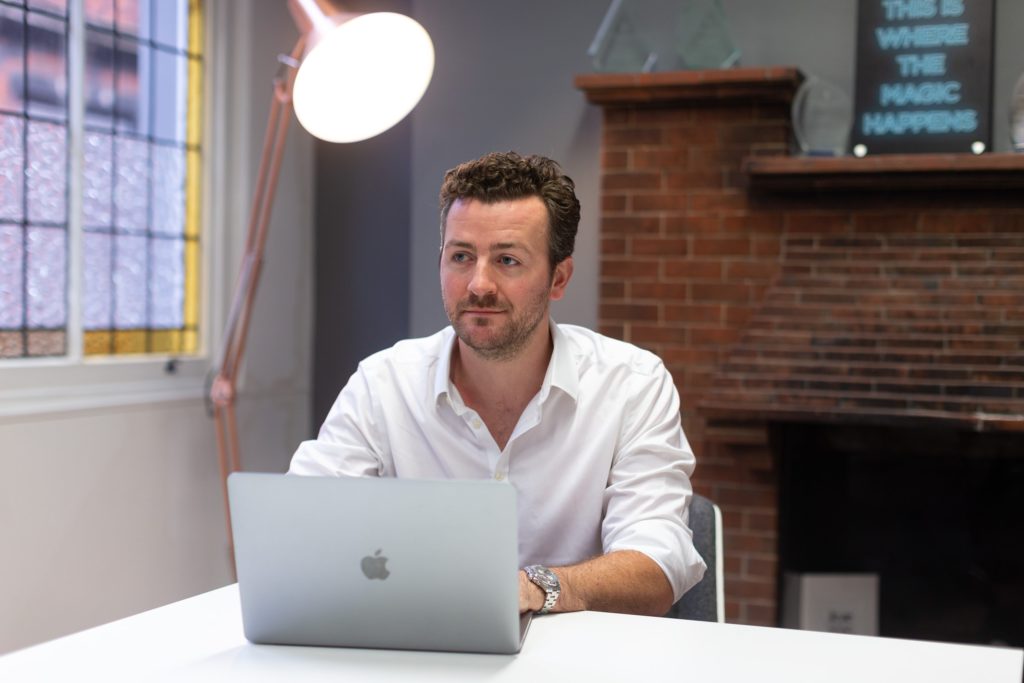Sector - Education & Training
A Year of Innovation and Collaboration

2020 has been an extraordinary year and has presented several unprecedented challenges for the UK’s construction industry, but COVID-19 has also provided unique opportunities for innovation as we look to move forwards and out of the pandemic. Charley Wainwright, The Future of Construction lead at national framework provider Pagabo, discusses what learnings this year has provided and considers what might be to come in 2021.
Enhancing productivity and closing the skills gap
If this year has taught us anything, it is the importance of a collaborative approach in construction, as well as a clear and refined focus on the future. We hope that construction continues to innovate through modern methods of construction (MMC), which is something that we have seen a huge uptake in over the last year or so, especially in student accommodation projects, high-rise apartment blocks, and modular buildings.
This expansion into MMC will allow contractors to build more efficiently and at greater speed – both of which are crucial in facilitating the UK’s economic recovery. Our collaborative work with The University of Sheffield Advanced Manufacturing Research Centre (AMRC) is set to challenge current methods in the sector and pioneer fresh ideas and innovations, taking learnings from the manufacturing industry to drive new ways of working and to embrace technology that increases productivity levels.
In conjunction with the requirement for greater collaboration is the much-needed closure of the skills gap in order to make the construction industry a more attractive place to work. As a result of mass job losses throughout the year, the most recent unemployment rate for July to September was 4.8% according to the Office for National Statistics (ONS) – which is an increase of 0.7% compared to the previous three months and meant that 1.62 million people were unemployed.
The construction sector is an industry where there is always opportunity for growth and development. Because of this potential, we must continue to place focus on our industry-wide engagement to create the construction industry of the modern day, in which we ‘do things better’. Our work at Pagabo will include working on the creation of modern construction qualifications that centre on modern practices and technologies to ensure that qualifications keep pace with the innovation we hope to see within the sector. It’s been clear over the latter part of 2020 that construction is set to be central to the post-COVID economic recovery, so it’s more important than ever that we plug the skills gap and ensure that construction is not just seen as a job, but an enticing career option.
The emphasis on wellbeing
It is no secret that suicide rates among those who work in the UK construction industry are three times higher compared to the national average. Stereotypically speaking, construction workers are renowned for their stoic and tough demeanour, and while these are not negative characteristics, they often result in the overwhelming need to be self-sufficient and can result in people not reaching out for help. For these very reasons, alongside the evidence we have to hand, it’s imperative that the industry takes more of a proactive approach to supporting those who may be suffering – often in silence.
There is still very much a crisis surrounding mental health and wellbeing within the sector and although large parts of the responsibility will fall upon individuals and the cultures of businesses in the industry, there are now tools that can be used in order to support the mental health of personnel in construction. One such tool is Moodbeam’s wearable health tech, which provides a unique solution to understanding and appreciating how employees are feeling at work via real-time reporting. With improving mental health provision within construction being the focus of the Pagabo Foundation, we are proud to be continuing to work alongside Moodbeam to combat mental health issues and the stigma that still exists particularly within our industry.
A focussed approach
There is no question that the construction industry is crucial to the UK economy and, as such, we were one of the sectors that was encouraged to continue working when the rest of the country was placed into a national lockdown in March. Boris Johnson’s ‘Build, Build, Build’ mantra is most certainly something that we will be aiming to latch onto in order to get ourselves out of the current tumultuous economic climate.
The latest iterations of Pagabo’s Major Works and Professional Services framework went live in the early weeks of lockdown, meaning that our launch plans had to adapt very quickly in order to provide our high-quality support to our ecosystem. This was only possible due to the implementation of digital communication – something that we have all become overly familiar with since March. We expect that the use of technology in this manner will continue in 2021 as we continue to battle the impact of COVID-19, but we also expect that many companies will take a blended and flexible approach when life does return to normality.
Face-to-face meetings and physical site visits will always have an important place in the construction industry, but the forced adaption to technology such as video conferencing we have all gone through in 2020 has found a firmly rooted place in practices moving forwards – and will help companies in a multitude of ways, from time saving to reducing carbon emissions.
We have rounded off the year with the awards to our brand-new developer-led framework, worth £47bn. Procurement practices like our own will be critical in helping public sector bodies bounce back as quickly as possible, providing a simple, effective, and compliant route to market.
The COVID-19 recovery will put a growing focus on social value, especially as public sector bodies face tighter budgets and need to show real, demonstrable return on investment.
As an organisation that puts social value at the heart of everything we do, we will be focusing on how we can help our clients and wider ecosystem generate positive social impact, as well as positive change for the industry as a whole. We are listening to clients and understanding which projects our public sector clients are looking to procure and when. We are also sharing that information with our partners where and when we can – to instil confidence and help them plan for 2021 and beyond.
Moving forward, everyone in the industry needs to work collaboratively with their clients to gain a better understanding of their issues, needs and requirements moving into 2021 – only through this can we all move forwards into what we all hope will be a year of greater productivity and collaboration, and one that sees a significant construction boom.
At Pagabo, we are passionate about being a solution-focused organisation and working alongside clients to deliver the very best outcomes for them. Despite approaching a new year with a somewhat unclear idea of what the next 12 months will look like, we will continue to champion and drive innovation and finding new, better ways of working, which will hopefully play a part in bring key schemes and developments to the industry.
If you would like to read more like this, then please click here
Related Articles
More Education & Training Features
- Immigration policy must serve Britain, not party politics – NFB
29 May 25
The Government has published a new White Paper which sets out major reforms to the UK’s immigration system.
- Moving beyond EDI to embed good employment
11 Apr 25
The benefits of EDI - higher retention, more productive teams, and healthy morale - are crucial.
- Universities fear government reforms will stifle construction sector demand for higher and degree apprenticeships
3 Apr 25
Industry fears forthcoming apprenticeship reforms will deter many construction firms from upskilling their workforce.






